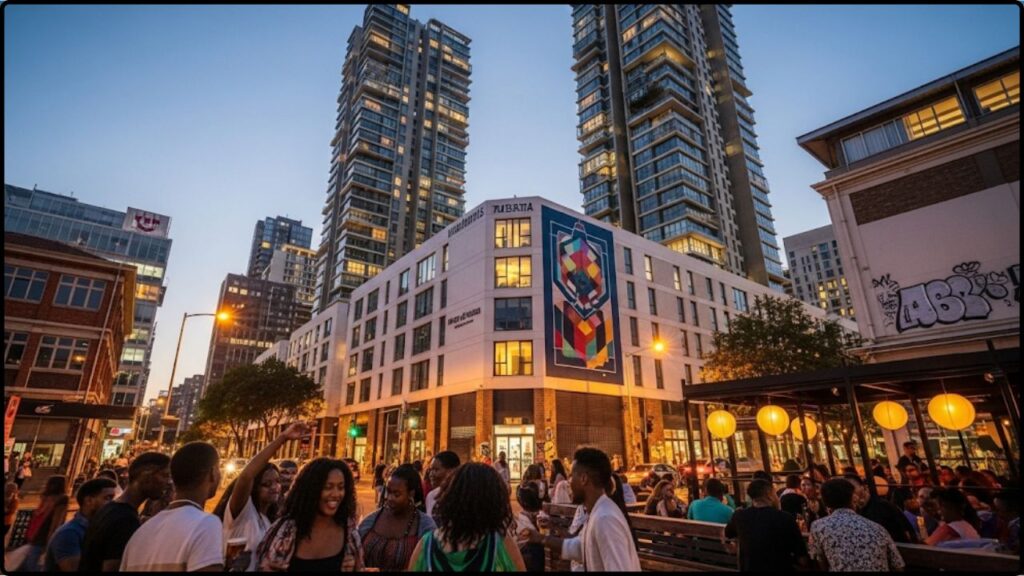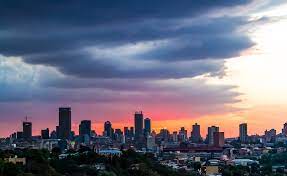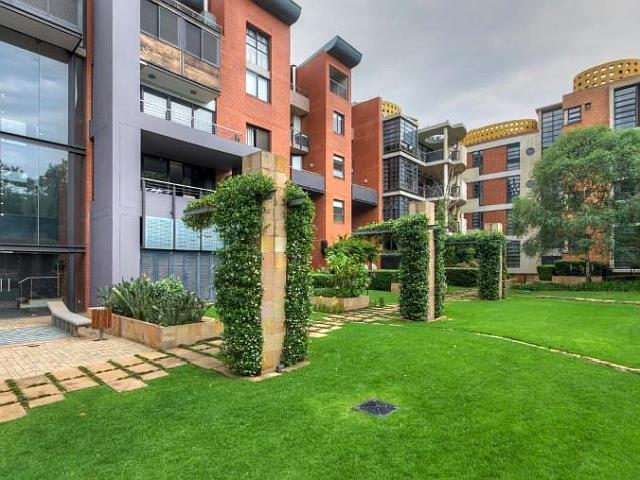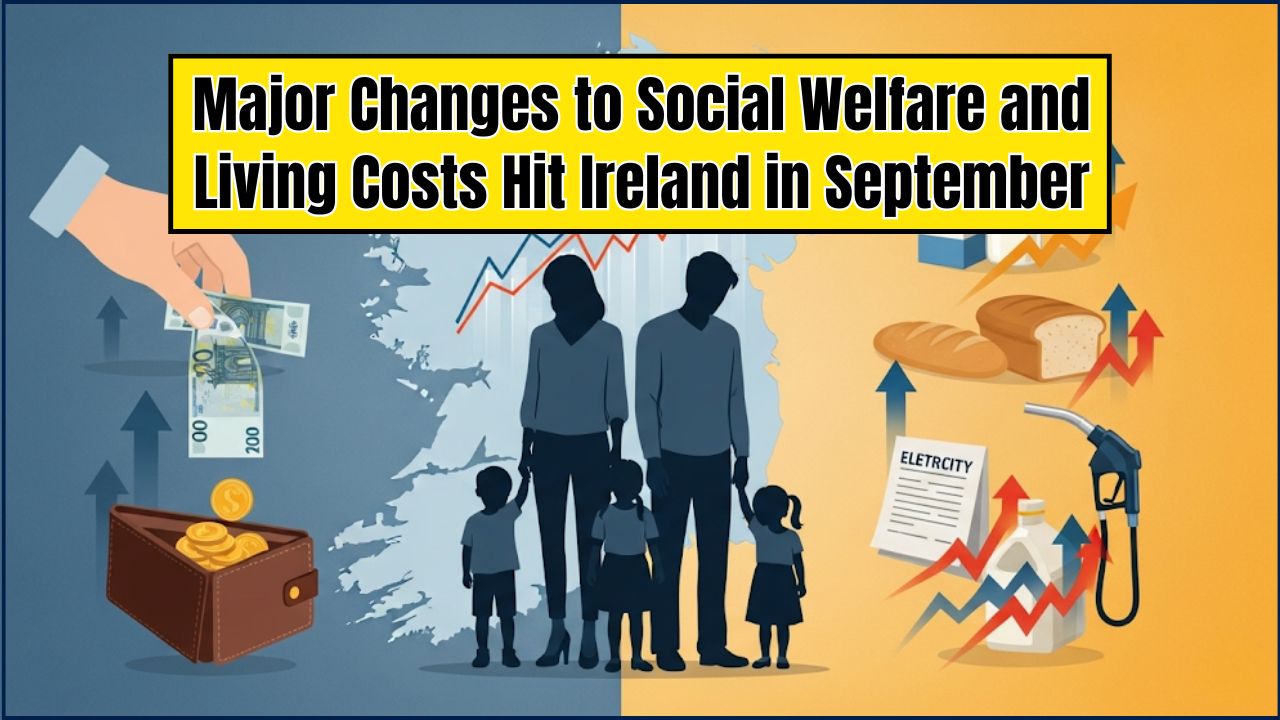Millennials and Gen Z are changing the game in Johannesburg’s real estate market. Forget white-picket fences and five-bedroom homes in the suburbs—today’s young buyers want compact, tech-ready pads near jazz clubs, rooftop bars, and co-working cafés. In other words, where culture meets clubbing is where the smart money’s going.
This article unpacks the latest real estate trends driven by the youth in Jozi—how they’re buying, where they’re buying, and why it’s changing the city for the better.

What are Millennials and Gen Z? Millennials (born roughly 1981-1996) and Gen Z (born roughly 1997-2012) are the two youngest adult generations currently shaping global trends. In Johannesburg’s real estate, they represent a dynamic shift, prioritizing lifestyle, connectivity, and affordability over traditional housing norms.
Pre-Rejuvenation (Late 20th Century) vs. Today:
For decades, Johannesburg’s inner city struggled with urban decay, often perceived as unsafe and unattractive for residential living. Fast forward to today, and areas like Maboneng and Braamfontein have undergone remarkable transformations. What were once disused industrial buildings are now trendy apartments, art galleries, co-working spaces, and bustling restaurants. This shift has not only boosted property values but also created vibrant communities where culture, work, and social life seamlessly intertwine, drawing in a new generation of residents seeking a dynamic urban experience.
Millennial & Gen Z Real Estate Trends in Johannesburg
| Trend | Insight |
|---|---|
| Who’s buying? | Millennials = ~42% of property buyers; Gen Z = 72% plan to buy soon |
| Price range | R750,000 – R1.5 million is the sweet spot |
| Hot areas | Maboneng, Braamfontein, Randburg, Midrand, Linden |
| Why these areas? | Walkability, nightlife, art culture, public transport, safety |
| Ownership models | Solo ownership, co-ownership, women-led buying trends |
The real estate game in Johannesburg is evolving, and it’s driven by a new generation of bold, culture-forward, financially smart buyers. Gen Z and Millennials are prioritizing security, sustainability, community, and nightlife—and they’re reshaping how we build and sell homes. Developers and investors who pay attention now will ride the wave as Joburg becomes one of Africa’s most vibrant youth-driven property markets.
Where Culture Meets Real Estate
Young South Africans aren’t just looking for a place to sleep—they’re buying into lifestyles. Neighborhoods that blend nightlife, music, art, and good Wi-Fi are winning big.
Hotspots in Johannesburg:
- Maboneng – Known for art galleries, pop-up events, and loft-style apartments.
- Braamfontein – Near Wits University; full of bars, clubs, coffee shops, and student flats.
- Randburg & Linden – Budget-friendly but well connected.
- Midrand – Great for first-time homeowners working in Joburg or Pretoria.
- Sandton Fringe (e.g., Rivonia) – Upscale, secure, with modern apartment living.
“I moved to Braam because I work remote. I’ve got rooftop access, a co-working café across the street, and good pizza downstairs,” says Tumi Mahlangu, a 29-year-old graphic designer.
Local Lifestyle & Business Culture
Here’s what draws young buyers to specific areas:
| Feature | Why It Matters |
|---|---|
| Coffee Shops & Coworking | Gen Z loves hybrid work. Shared spaces = community. |
| Live Music & Jazz Clubs | Cultural appeal boosts local property values. |
| Safety & CCTV Access | Most buyers won’t consider places without it. |
| Social Media Appeal | Rooftops, murals, and views help properties go viral. |

Shoutout to The Playground Market in Braam and Origin Coffee in Maboneng—both are making their neighborhoods top picks.
Renting vs Buying: What’s Better for Gen Z?
| Factor | Renting | Buying |
|---|---|---|
| Monthly Cost | Lower upfront | Higher bond, but builds equity |
| Flexibility | High | Medium |
| Wealth Building | No | Yes |
| Tax Benefits | None | Possible (deductibles, value appreciation) |
| Ownership | None | Full or partial |
| Best For | Freelancers, frequent movers | Long-term planners, investors |
Pro Tip: If you’re staying more than 5 years, buying often makes more financial sense.
What Are Young Buyers Looking For?
- Smart Tech: App-based security, solar water heaters, fiber-ready units.
- Low Maintenance: Smaller spaces, modern finishes, and shared services.
- Community Vibe: Events, rooftop spaces, co-ownership.
- Financial Options: Zero-deposit loans, bond subsidies, government incentives.
Check out FLISP – a government subsidy program for first-time homebuyers earning under R22,000/month.
Real Estate Glossary for Beginners
- Sectional Title: You own a unit, but common areas (e.g., garden) are shared.
- Bond: The loan from a bank to buy a property (aka a mortgage).
- Transfer Duty: A tax you pay when buying a property (free under R1M).
- Co-ownership: Two or more people buying one property together.
Renting vs. Buying for Jo’burg’s Young Professionals

| Feature | Renting in Johannesburg (Millennials & Gen Z) | Buying in Johannesburg (Millennials & Gen Z) |
| Flexibility | High – easy to move, explore different neighborhoods. | Lower – long-term commitment, but offers stability. |
| Upfront Costs | Lower (deposit, first month’s rent) | Higher (deposit, transfer duties, legal fees, bond registration) |
| Maintenance | Landlord’s responsibility (mostly). | Your responsibility – potential for unexpected costs. |
| Investment | No direct equity build-up. | Builds equity over time, potential for capital appreciation. |
| Lifestyle Focus | Prioritizes freedom, experiencing different areas, less responsibility. | Focuses on stability, personalization of space, building long-term assets. |
| Popular Areas | Maboneng, Braamfontein, Melville, Rosebank. | Midrand, Northern Suburbs (Randburg, Morningside), specific inner-city developments. |
Tips for Real Estate Agents & Developers
Marketing Tactics That Work:
- Instagram virtual tours
- WhatsApp campaigns
- Partner with influencers
- Host art or music events at new developments
What to Build:
- Mixed-use buildings (cafés, coworking + housing)
- Pet-friendly spaces
- Rooftop gardens
- Energy-efficient tech (solar, greywater, induction stoves)
Top 3 Mistakes to Avoid When Buying Property in Johannesburg:
- Don’t Skimp on Research: Jo’burg is diverse! Don’t assume one area’s trends apply everywhere. Research specific neighborhoods’ safety, amenities, and growth potential.
- Myth: Inner-City Living is Only for Students: While popular with students, many inner-city developments cater to young professionals and even families, offering modern apartments and secure environments.
- Mistake: Ignoring the “Vibe”: For Millennials and Gen Z, the surrounding culture and social scene are as important as the property itself. Visit at different times of day to gauge the true atmosphere.
Cultural Crossroads: Hip-Hop, House & Homeownership
Millennials and Gen Z grew up on Amapiano, Jazz, and Trap. Their idea of luxury? A compact apartment, near a live DJ set, with a view of Jozi’s skyline. Developers tapping into these cultural identities are selling out faster.
“We don’t need lawns, we need vibes,” jokes Thabiso, a 32-year-old chef and first-time homeowner in Ferndale.
FAQs
Q1: What’s the average deposit for first-time buyers?
A: Most banks ask for 10%–20%, but some offer zero-deposit home loans to young professionals.
Q2: Can I get a home loan with a side hustle?
A: Yes, but you’ll need at least 6 months of income proof and a good credit score.
Q3: How do I find affordable homes under R1 million?
A: Use filters on Private Property, Property24, or ask agents for FLISP-compatible listings.
Q4: What about crime?
A: Stick to secure complexes, access-controlled buildings, and zones with visible patrols. Crime rates vary by neighborhood.
Infographic Stats
2025 Joburg Youth Housing Trends
- 72% of Gen Z say they plan to own property by age 35
- R1.2M = average price for Millennial buyers
- 54% of buyers under 35 are women
- 40% prefer properties inside gated communities
- 68% value sustainability features over square footage












